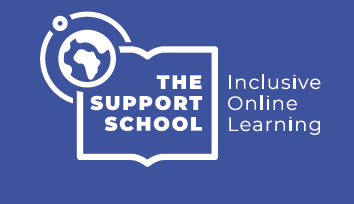As an experienced teacher who has spent years embracing the transformative power of digital learning, I can attest to the profound impact it has had on teaching and learning dynamics. The famous writer and futurist Alvin Toffler once said,
"The illiterate of the 21st century will not be those who cannot read and write, but those who cannot learn, unlearn, and relearn."
This sentiment perfectly captures the essence of online learning.
Online learning introduces unparalleled flexibility, breaking the spatial and temporal constraints of traditional schooling. I've had students who travel, work part-time, or live in different time zones, yet manage to attend classes and complete assignments. Such versatility facilitates an inclusive learning environment where opportunities aren't dictated by one's geographical location or schedule.I once had a student who moved abroad halfway through her course. With our online classroom, she transitioned seamlessly without interrupting her academic progress or social connections.
Online platforms allow for the creation of personalised learning pathways, tailoring educational experiences to individual students' needs. Traditional classrooms often struggle with the 'one-size-fits-all' approach, which doesn't cater to diverse learning styles and paces. An introverted student I once had in my class, hesitant to participate in traditional classrooms, thrived in the online setting. He was more comfortable contributing to forum discussions and private chats, and this personalised interaction boosted his confidence and learning significantly.
The digital world is rich with resources and tools that enhance the learning experience. Video lectures, interactive simulations, and comprehensive databases are readily accessible online, as are AR and VR learning content too. It's a far cry from the limited resources in a traditional classroom.
I often use online simulations in my science class to create an immersive learning experience. Students explore complex concepts with these interactive tools, a feat rarely possible in the confines of a physical classroom.
Online learning inherently fosters digital literacy, an essential skill in today's digital world. Moreover, it encourages a culture of lifelong learning, as the wealth of knowledge is just a click away. For example, one of my adult students, initially technologically challenged, gradually mastered various online tools. He confessed this newly found digital literacy had empowered him personally and professionally.
Through the digital learning community, students can connect with peers worldwide, nurturing global perspectives. The traditional classroom rarely offers such diverse interaction.In our online global music and culture project, students partnered with peers from different countries, developing a profound understanding of cultural nuances and global issues.
Conclusion: Online learning, with its flexibility, personalisation, extensive resources, digital literacy, and global interaction, presents immense opportunities often missed in traditional classrooms. As teachers, we must harness this potential to provide comprehensive, inclusive, and modern education, empowering our students for the future they are to shape.
"Education is not the filling of a pail, but the lighting of a fire." - W.B. Yeats.
Let's light that fire in the digital age.
"The illiterate of the 21st century will not be those who cannot read and write, but those who cannot learn, unlearn, and relearn."
This sentiment perfectly captures the essence of online learning.
Online learning introduces unparalleled flexibility, breaking the spatial and temporal constraints of traditional schooling. I've had students who travel, work part-time, or live in different time zones, yet manage to attend classes and complete assignments. Such versatility facilitates an inclusive learning environment where opportunities aren't dictated by one's geographical location or schedule.I once had a student who moved abroad halfway through her course. With our online classroom, she transitioned seamlessly without interrupting her academic progress or social connections.
Online platforms allow for the creation of personalised learning pathways, tailoring educational experiences to individual students' needs. Traditional classrooms often struggle with the 'one-size-fits-all' approach, which doesn't cater to diverse learning styles and paces. An introverted student I once had in my class, hesitant to participate in traditional classrooms, thrived in the online setting. He was more comfortable contributing to forum discussions and private chats, and this personalised interaction boosted his confidence and learning significantly.
The digital world is rich with resources and tools that enhance the learning experience. Video lectures, interactive simulations, and comprehensive databases are readily accessible online, as are AR and VR learning content too. It's a far cry from the limited resources in a traditional classroom.
I often use online simulations in my science class to create an immersive learning experience. Students explore complex concepts with these interactive tools, a feat rarely possible in the confines of a physical classroom.
Online learning inherently fosters digital literacy, an essential skill in today's digital world. Moreover, it encourages a culture of lifelong learning, as the wealth of knowledge is just a click away. For example, one of my adult students, initially technologically challenged, gradually mastered various online tools. He confessed this newly found digital literacy had empowered him personally and professionally.
Through the digital learning community, students can connect with peers worldwide, nurturing global perspectives. The traditional classroom rarely offers such diverse interaction.In our online global music and culture project, students partnered with peers from different countries, developing a profound understanding of cultural nuances and global issues.
Conclusion: Online learning, with its flexibility, personalisation, extensive resources, digital literacy, and global interaction, presents immense opportunities often missed in traditional classrooms. As teachers, we must harness this potential to provide comprehensive, inclusive, and modern education, empowering our students for the future they are to shape.
"Education is not the filling of a pail, but the lighting of a fire." - W.B. Yeats.
Let's light that fire in the digital age.



